Adapting to evolving Filipino consumer habits

By Mhicole A. Moral, Special Features and Content Writer
Cultural values, economic conditions, and digital advancements are reshaping Filipino consumer preferences in profound ways. Recent studies have highlighted a shift in spending habits, with price sensitivity driving many consumers toward affordable alternatives in essentials such as food, clothing, and personal care.
At the third panel discussion of BusinessWorld’s Forecast 2025 on Nov. 26, themed “Keeping Retail’s Pace with Consumers’ Changing Ways,” industry experts explored how businesses can navigate these evolving behaviors.
According to Vicky V. Abad, country director at Ipsos Philippines, the pandemic has fundamentally altered consumer habits, values, and brand interactions.
“So much of our research has pointed to the fact that we have impacted change in a lot of aspects — not only in terms of behavior but also in the ways we communicate, digitalize our lives, and respond to new demands,” she shared.
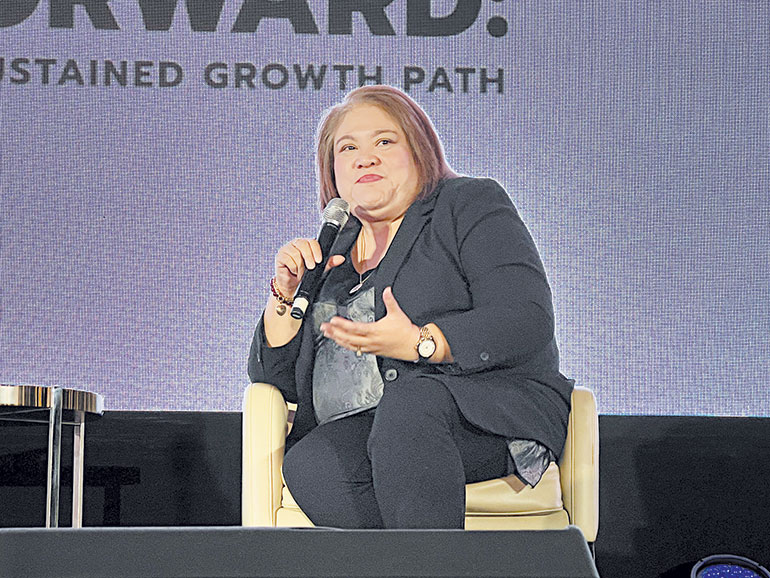
The economic challenges faced by many Filipinos have also sparked innovation in income generation, leveraging digital platforms and social media. “Our access to foreign income and social media utilization has transformed how Filipinos, even those from class B, manage their finances,” said Ms. Abad.
Although these ventures may not provide consistent income like traditional jobs, they offer flexibility and adaptability, resulting in a more diversified cash flow to help meet spending needs.
The Ipsos managing director described a phenomenon called “premiumization,” where people, particularly those with disposable income, express their individuality through curated purchases that align with an increasing willingness to spend on quality, personal expression, and unique experiences.
“Even with inflation and economic concerns, we see consumers gravitating towards premium products,” Ms. Abad explained. “They’re investing in lifestyle choices that reflect their values and aspirations.”
Similarly, Sherisa P. Nuesa, chairperson of Metro Retail Stores Group, Inc., highlighted the resurgence of in-person activities like shopping and dining out, which has already surpassed pre-pandemic levels.
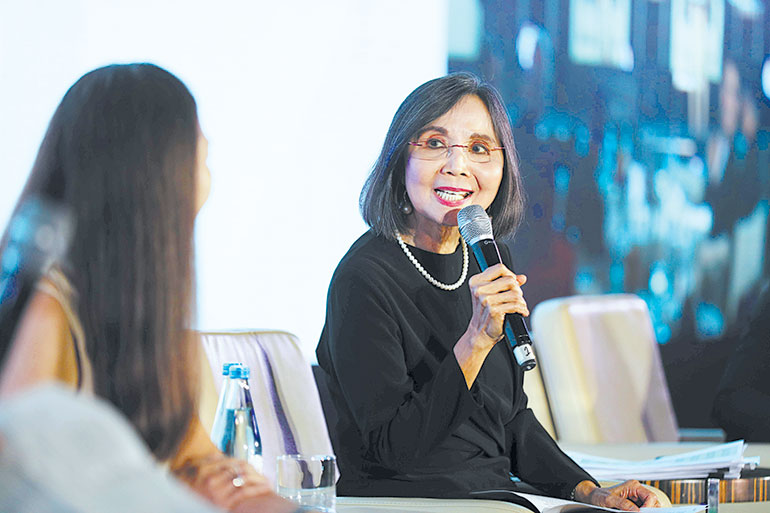
“Traffic in malls and stores has rebounded, driven by the constrained spending during the pandemic,” she observed. This rebound is particularly prominent among Gen Z consumers, whose unique traits, such as individuality, digital savviness, and a heightened focus on wellness, are reshaping market dynamics.
Meanwhile, Jennifer Jane G. Echevarria, vice-president for enterprise data and strategic services at Globe Telecom, noted that Filipino consumers, while grappling with financial difficulties, remain fundamentally optimistic.
“In terms of spending, we’ve seen that Filipinos are still very challenged,” she said. “But they remain hopeful and thankful for what they have. This mindset influences their priorities.”
Factors affecting buying habits and preferences
While price is a crucial factor in buying behavior — leading many consumers to switch to cheaper brands or compare prices before making a purchase — today’s customers are increasingly focused on expressing their preferences.
“There is that affordability factor,” said Ms. Nuesa. “But customers of today are different. They don’t only look at price; they are more focused on expressing their personal preferences and even social interactions.”
She also highlighted economic indicators, such as increasing incomes and a growing middle class in creating a divide in spending behaviors. On one side, mass-market consumers are focused on essentials due to budget constraints, while the rising middle class is driving demand for premium goods.
For businesses like Metro, investing in omnichannel, like having both traditional and digital stores, enables companies to adapt their expansion plans and market strategies effectively. “Customers want to see people connected via the digital highway while also having access to physical stores in convenient locations,” Ms. Nuesa noted.
On the other hand, Ms. Echevarria stated the importance of consumer trust as consumers tend to prefer reliable brands amid economic pressures.
“Trust has become the new currency for Filipinos. It takes years to build, but minutes to lose,” she added. “When income doesn’t really go high, you cannot predict the weather and the impact of all the things that’s happening, people are for a brand that will fulfill their promise.”
Spending habits of different generations
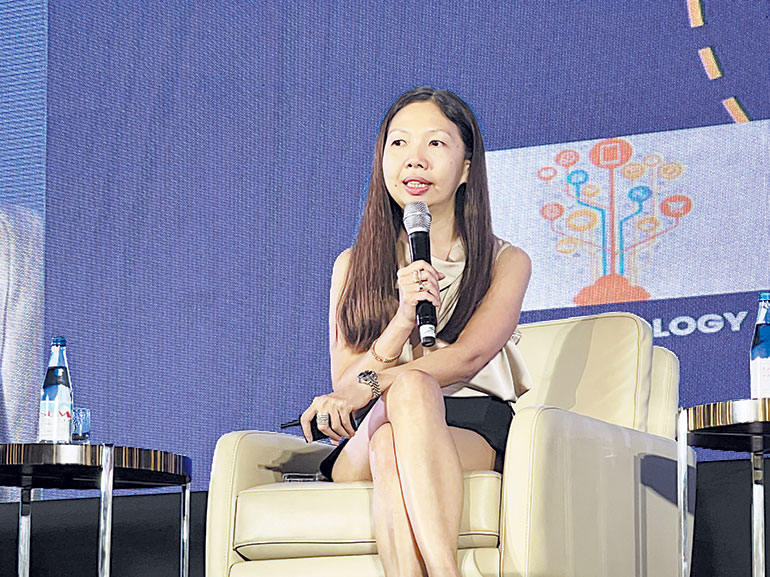
According to Ms. Echevarria, brands must stay agile to adapt to generational shifts and societal trends. For instance, Gen Zs, born between 1997 and 2012, gravitate toward brands that align with inclusivity, bold stances on societal issues, and community-building initiatives. This generation seeks authenticity, valuing brands that contribute to their success and foster a sense of belonging.
Having grown up during a time of industrial and cultural expansion, Millennials favor brands that enable them to pursue their dreams while providing a sense of community. “Millennials are looking for brands that advocate for their passions,” Ms. Echevarria noted.
Meanwhile, Gen Xers are often described as individualistic yet family-oriented who value practicality and security. They seek brands that support their pursuit of a balanced life, helping them secure their children’s future while allowing space for personal passions.
As Baby Boomers enter the active stage of their retirement, they value brands that enhance their lifestyle, whether through travel, health, or meaningful engagements.
The youngest consumers, Generation Alpha, are still developing their identity but are heavily influenced by their parents. “What matters to their parents often becomes important to them,” Ms. Echevarria explained. This generation values creativity, curiosity, and future-oriented products, making them a group to watch for long-term brand strategies.
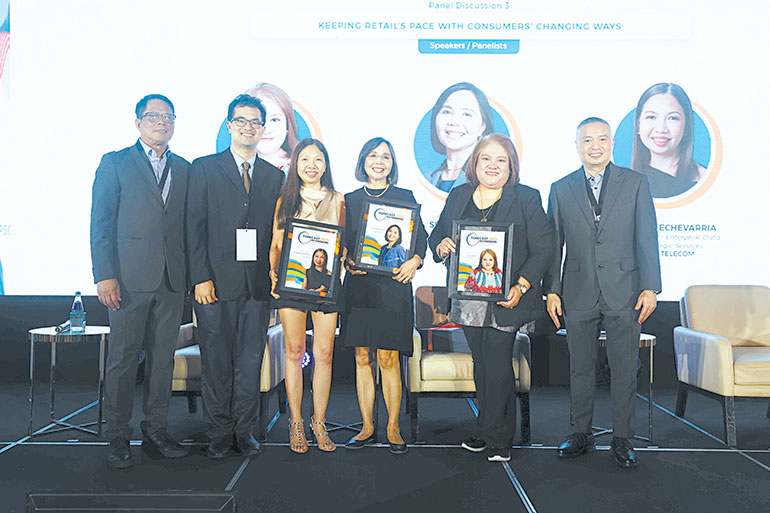
Meeting consumers where they are
The discussion also emphasized the need for businesses to assess their offerings to meet the diverse and ever-changing needs of their clientele.
Ms. Echevarria highlighted the need for businesses to embrace flexibility and customization as consumers prefer solutions that ensure convenience and adapt to their fluctuating needs.
The Globe executive also emphasized the growing importance of digital payments in fostering financial inclusion and independence. “There is a full-time expectation that we need to be able to support digital payments so that we can deliver peace and convenience in terms of the full end-to-end experience,” Ms. Echevarria explained.
Meanwhile, Ms. Abad mentioned that trust and sustainability are increasingly central to consumer decision-making. Thus, businesses must walk the talk when it comes to responsibility. “No single brand would be able to get away with not being responsible in some ways of work because every consumer will already be looking for it,” Ms. Abad asserted.
According to Ms. Nuesa, the recent events further amplified the emphasis on transparency, quality, and purpose. “Filipinos are increasingly focused on healthier choices and smaller, sustainable quantities,” she added. “Lifestyle changes are evident, from food products to wellness programs, as individuals align their values with their purchases.”
The trend also extends to the rise of hybrid work models and the growing adoption of digital tools. Consumers now favor products and services that complement their work-from-home setups or digital-driven routines.
Ms. Nuesa also emphasized that budgetary concerns have not diminished consumer choice but rather enhanced it. “Customers have become very smart in their spending,” she remarked. “They are not only switching to affordable alternatives but are also exploring third-hand goods and embracing thrift culture.”
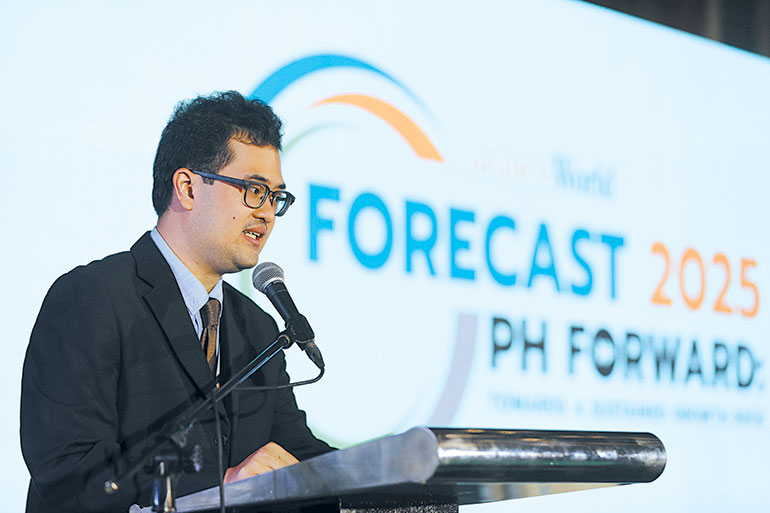
As businesses adapt to changing dynamics, offering choice, building trust, and creating experience will be crucial to staying relevant in the post-pandemic consumer landscape. “It’s very important to give customers choices, [because] it’s not always about the price. It’s up to [businesses] to understand and make sure that we offer the best for them,” said Ms. Echevarria.



